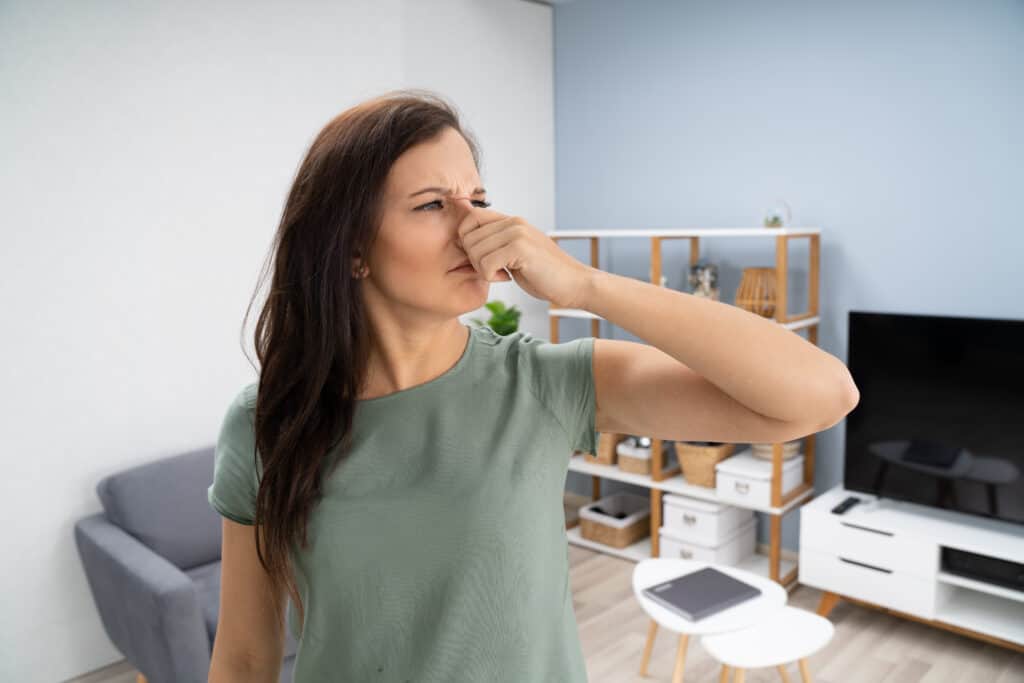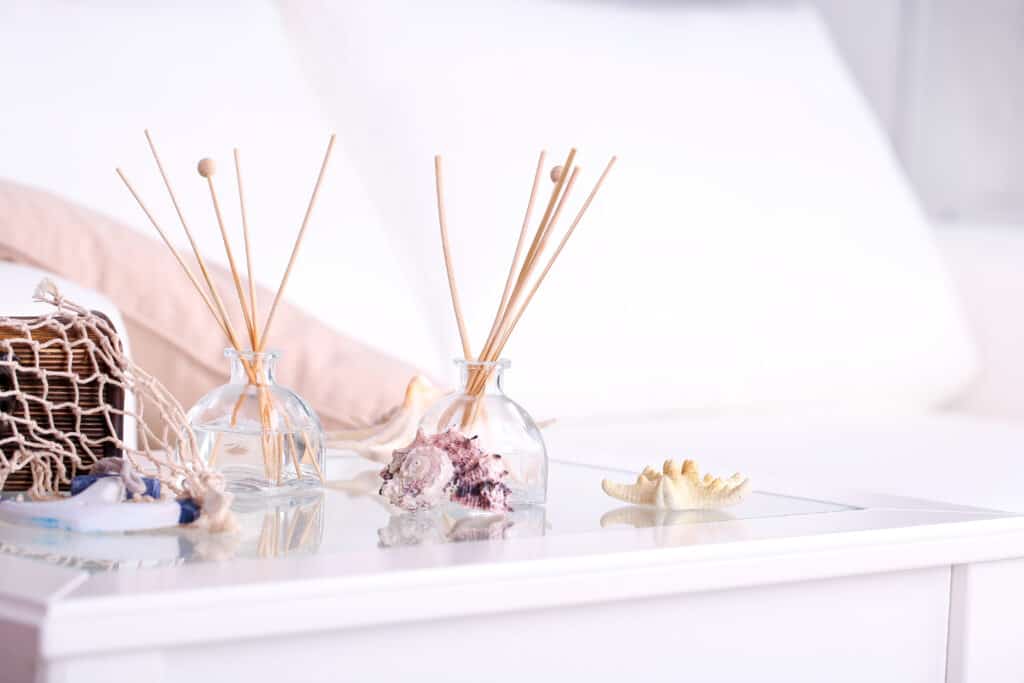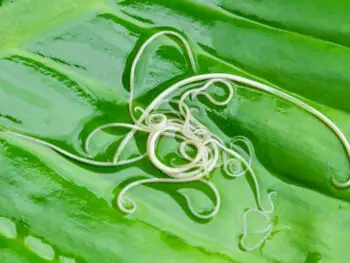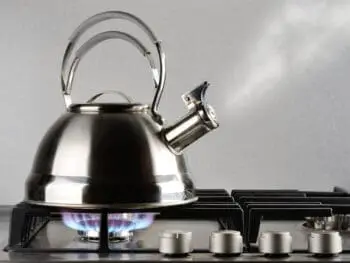Just like every person, every home too has its unique personality, and an aspect of that personality is the signature scent of that home.
This aroma is actually a combination of all odors inside that space. So, while everybody wants their home to flaunt the citrusy fresh scent of hotel lobbies, that’s not how things work out for all houses.
In fact, often some homes smell less pleasant than others despite the generous use of scented home care products.
To add to the problem, the inhabitants of a dwelling get desensitized to the odors around them over time. This is a natural process, so while they don’t smell a thing others can’t wait to get out and get a whiff of fresh air.
The realization that their home reeks comes quickly for most and that’s usually the starting point of a mad dash to clear their home of the offensive smells.
Also, it begets the questions – Do, these odors impact indoor air quality, and if so, how?
Continue reading to find the answers to these questions and to know surefire hacks to make your house smell good.
Are Those Smells An Indication Of Poor Air Quality?
Because they don’t have a visible footprint, odors seem to appear out of thin air. In reality, they are caused by microbial volatile organic compounds.
These foul smelling tiny molecules can usually be traced back to one or the other microorganism. Inside your home, the most likely culprits are bacteria and fungus.
Also, particulate matter can have distinctive and not always pleasant odors; case in point – tobacco smoke. Malodors that can be attributed to suspended air particles and microorganisms are definitely a red flag.
Carbon particles, the toxins released by tobacco smoke and mold spores can all cause respiratory issues. Similarly, if bacteria feasting on waste are raising up a stink, these too signal trouble because eventually the critters will move out in search of greener pastures (in this case, that’s you as their host).
On the other hand, if the offensive odor is the result of sulfur-rich and other strong smelling food items (read garlic and onion), what you have on your hands is a stinky situation without any real trouble.
But, here is the problem, the molecules of these volatile organic compounds (both microbial and non-microbial) find their way into any surface/item around your home that will harbor them.
That’s all fabrics and even porous surfaces like wood, clay and others! So, even when you remove the source of the stench, the odor continues to offend.
The truth about those pleasant scents!
When confronted with an offensive occupancy odor, most homeowners are quick to turn to masking products. I am talking about air fresheners, scented candles, and cleaning products. But, these bring along their own set of problems.
Unless otherwise stated, these products are a concoction of some very harsh chemicals. In fact, even those that claim to use natural scents often have other substances that are 100% chemical and artificial.
And when you use these products, you are essentially infusing your indoor air with all those chemicals. Basically, you are allowing them into your lungs and your body with every breath you take.
But, here is the biggest problem – Even 100% natural products, including those that are homemade, hence can be vouched for, don’t necessarily solve the problem.
Because bad odors don’t stay down for long!
The thing with bad odors is that they tend to linger around longer than good odors. This means that while you can mask the stench for a bit, rest assured that it will make a comeback with a vengeance the minute those fragrant volatile compounds make their way out of home.
The problem stems from the fact that the bad odor causing volatile compounds and the polymers used in a lot of fabrics are buddies, given their shared aversion to water.
So, for these little stinkers, the space in between the fibers is a comfortable spot from where they can continue to do their dirty job unabated.
Moreover, your supply of the good odors is limited but the microorganisms that commit those olfactory crimes will keep their stench factory running unless they are killed.
Simply put, masking the stink is a short term and ineffective solution. So, you have to get to the core of this problem to deal with it, which brings us to our next section.
Defense Before Offense – Hacks To Make Your Home Smell Good By Tackling The Stinkers!
When it comes to bad odors, your home has a few spots and items that are serial offenders. Now, the problem with stench that fills the insides of your home is that it quickly mixes with other regular scents to form a new, but still objectionable odor.
Hence, it can be hard to identify the source, unless a homeowner has allowed things to get truly out of hands in a certain area. So, if you are dealing with bad odor, check out these areas first:
The laundry room/closet/hamper:
How can this area possibly stink; after all, it has soap, detergent, fabric softener and what not stored in it?
But, along with all those scented cleaning products it also has laundry hampers filled with socks, undergarments, t-shirts, shorts and other clothes that are full of sweat, dead cells and of course bacteria.
In fact, the funky smell these produce is a mixture of at least 6 obnoxious volatile organic compounds. These are enough to give all those scented products a run for their money.
So, to deal with this problem area, you can do this:
- Pick hampers that can be washed easily and/or disinfected easily. So canvas, mesh fabric and even plastic (although not eco-friendly) are all good options.
- Fabric hampers need to be washed every 2 to 4 weeks while plastic ones need a good wipe down with a disinfectant every month.
- For wicker and wooden hampers, you will have to vacuum these to remove the dust and then use a disinfectant spray to get into the crevices and corners.
- Whatever the material used, air dry the hamper, preferably in direct sunlight. This gets rid of the germs and the odor.
- To keep the hamper smelling fresh, throw in a scented dryer sheet, a cotton ball with a drop or two of tea tree/ eucalyptus essential oil on it, a small potpourri bag or a small pouch of an odor absorber.
- To deal with a funky smelling washing machine, run a load of hot water with a cup of distilled white vinegar added to it or mix ½ cup of baking soda with ½ cup of water and add this to the detergent container of the machine and run a cycle at high heat.
- If the laundry closet/room smells like sewer, you may have a problem with the p-trap in the drain, so have this checked out.
The kitchen:
Of course this problem spot is responsible for just as many unsavory smells as the savory ones that waft out of it.
After all, your kitchen contributes significantly to the waste output of your home!
The big problem is that unlike the laundry room you have several trouble spots in this area. So, if you dealing with a reeky kitchen, here is where you need to start:
- If you live in a humid zone and have rugs/carpet in the kitchen, they will trap moisture and play the perfect host for mold and fungal growth. Remove fabric rugs from the kitchen if possible and if that cannot be done, vacuum weekly and have them steam cleaned every 6-12 months.
- Deal with spills immediately, all you need in some warm soapy water and a clean rag to get the job done.
- Make a solution with a cup of warm water, 2 drops of your favorite herbal/citrus essential oil and 2 spoons of vinegar. Spray on the kitchen rugs and leave them out in the sun for 2-3 hours. But, this only works for light colored fabric rugs.
- Twice a week, dump citrus peels in the garbage disposal and run the unit. Then, let water run through the drain with the unit on for about a minute and you’ll be done. You could also use a dollop of dishwasher soap or a cup of baking soda in the same way.
- Take out the trash every day and clean the inside of the bin, including the lid once or twice a month.
- Sprinkle some scented kitty litter/baking soda/borax into the bin before placing the garbage bag in it. Discard with the filled garbage bag every day.
- Stick a dryer sheet to the lid of the bin or throw in a tissue paper ball laced with a drop of lemon/eucalyptus essential oil.
- Add a drop of spent essential oil (if you have any unused bottles that are about to expire) into the garbage bag after placing it in the bin.
- Microwave a cup of water with the juice of one lemon mixed with it for 5 minutes. Don’t open the door for half an hour and you will have a fresh smelling microwave.
- For a smelly stove/oven, mix 2 cups of water with a cup of vinegar in a pot and place on the stove or in the oven. Allow to boil and then switch off the heat and let the vinegar vapors soak up the stench. This even works on the dreaded fish stink.
- Rub lemon juice on cutting/chopping surfaces to get rid of strong food odors.
- Do an inventory check for the refrigerator every 2 weeks to get rid of leftover food and condiments that are past their prime.
- Control spills by using lids of plastic containers to catch them before they turn into a stinky mess.
- Wipe the inside walls of refrigerator with a solution made by mixing 1 cup warm water with 1 cup white vinegar and ½ tsp dish soap or 2 drops lemon/lemongrass essential oil. Clean removable shelves by soaking them in hot soapy water fist and then rinsing them.
- Fill a shallow bowl with baking soda and cover with plastic wrap, make small holes in the film and keep 2-3 such bowls in the refrigerator.
- Place a bowl filled with white vinegar near the stove when cooking food items with strong aromas and let the bowl stand near the stove all through the night.
The obvious problems:
Some areas of the house are such trouble zones that people are actually surprised when homes don’t have an odor issue in these areas. So, if you want these problem areas to be odor free, this is what you need to do:
- Clean the litter box every day.
- Bathe your pets regularly.
- Use small garbage pails instead of a large bin so you are forced to take out the trash every day.
- Check all corners and walls of the bathroom for signs of mildew and mold. Also, check the walls of adjacent or adjoining bedrooms.
- Take a look at the window sills and the surface of the soil of indoor plants for signs of mold.
- Use moisture absorbing crystals in closets and areas prone to humidity.
- Clean the toilet bowl before it begins to show signs of staining.
5 Simple, Natural Yet Effective Hacks To Make Your Home Smell Good – And These Don’t Cost Anything!
- Throw open the windows: This may be the simplest hack in the book, but it also happens to be the one that’s the most effective and the cheapest. Plus, the sunlight that makes its way into the room will instantly energize the space and uplift your mood.
- Get the dust out: From insect poop to pet dander and from dead cells to soil particles, dust has all of these and more. So, dust hiding in the nooks and crannies of your home not only makes the indoor air unsafe to breathe but also makes your house stink. Hence, give your home a good top down dusting every week.
- Keep the floors clean: For hardwood floors use a damp mop to capture the dust, stains and stench. Personally, I prefer to add 2 drops of tea tree oil to the water that I intend to use for wet mopping. This is just enough to get rid of the germs and the odor and yet be safe for pets and kids.
- De-stench the soft surfaces: Carpets, couches, rugs, pillow and table runners see a lot off action and in a typical household need attention at least once every 2 weeks. One way to get rid of the stench is to sprinkle baking soda and leave it be for about 30 minutes and then vacuum the treated area.
- Keep the furnishings clean: Bed sheets and pillow cases should be changed every week if not sooner and try to wash the used sheets as soon as possible. Curtains should be washed/changed/dry cleaned every 3-6 months.
16 Fragrance Hacks To Make Your House Smell Good – Getting Rid Of Occupancy Odor!
- Boil some potpourri or all spice mix in an open pan. Allow the water with the mix in it to simmer for about 15 minutes. Keep the windows slightly open and the fragrant vapors will do their job.
- Fill a medium sized bowl with coffee beans and place a tea candle in the middle of the bowl such that the beans surround the tin container that holds the candle. Light the candle and soon enough your home will be filled with the aroma of fresh brewed coffee.
- Spray some cooking oil on a baking pan and place a few sticks of cinnamon and some orange rind on it. Bake on high heat for a few minutes.
- Place scented candles in the closet (don’t light them of course) or you could use scented dryer sheets.
- Keep a green tea bag (unused) treated with a drop of your favorite essential oil in the underwear and socks drawers.
- Refresh the carpets, curtains and upholstery by using a mix of 1 cup vodka (any cheap brand) and a few drops of your favorite essential oil single/blend. Spray over the upholstery and furnishing while keeping the windows open.
- Pour a drop of essential oil on the glass side of the incandescent bulb in the room.
- Use a clip-on deodorizer on the air vents or tape a ball of cotton wool with 3-4 drops of your favorite essential oil on it, to the vents.
- Before you head to bed, simmer a few slices of citrus and some herbs (whatever you have in your kitchen) for a couple of minutes.
- If a part of your wood furniture is not easily exposed to pets and kids, like the board that gets covered by the side table, paint this with your favorite essential oil blend.
- Mix a cup of baking soda with 10 drops of your favorite essential oil and pour the mixture in small mason jars. Stick a fake succulent in it for effect.
- If you have a green thumb, grow fragrant plants on your window sill like jasmine, eucalyptus and mint. But, do this only if you can care for the plant and the soil in the pot.
- Soak a cotton ball with your favorite essential oil/perfume and place it in the vacuum cleaner bag.
- Don’t discard citrus peels, instead sun dry them and store in a zip lock bag. Throw a few dried peels onto the logs before you get the fire going.
- Add 3-4 tbs. lemon juice to the water humidifier to get rid of the germs and the moldy smell.
- Stop the stench of fresh paint by mixing a tbsp. of coffee/vanilla aroma oil to the paint can as soon as it is opened.
Because a stinky home will just does not work!
Never mind the reaction of visitors, a home with an offensive smell is a bigger problem for the people who live in it.
After all, your sense of smell is the most powerful of all your sense and the one that is the most closely related to your emotions, mood and your memories.
Hence, offensive odors, even those that your nose eventually gets used to, will put you in a foul mood as soon as you walk into the house. On the other hand, a home that smells clean and good will have an almost immediate relaxing effect on your brain and body.
And who does not deserve a relaxing, welcoming home? So, use the tips above and you will never have to worry about your home being the olfactory offender of the neighborhood.

















 How To Announce Pregnancy To Family At Dinner?
How To Announce Pregnancy To Family At Dinner?